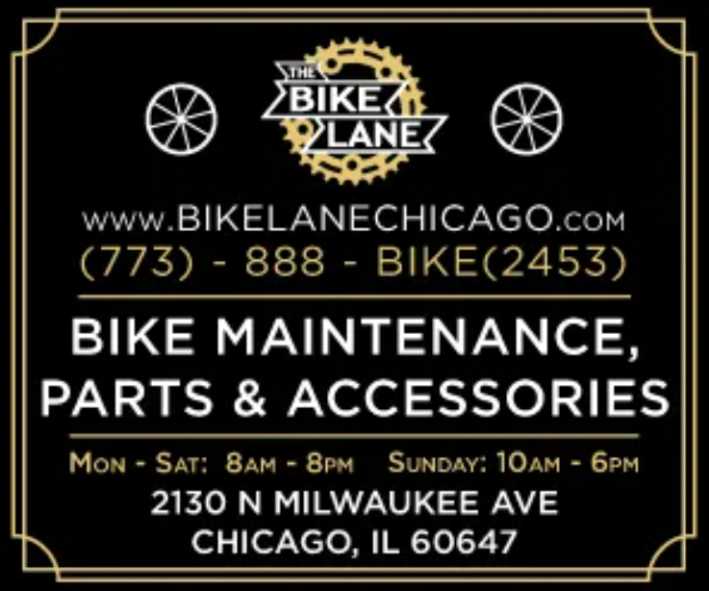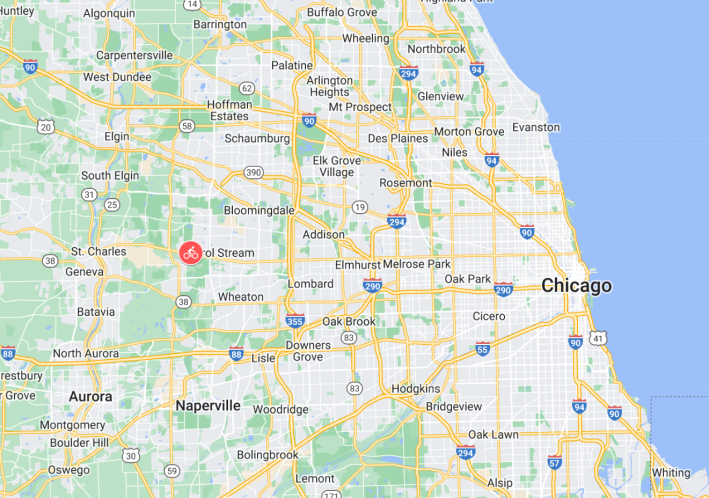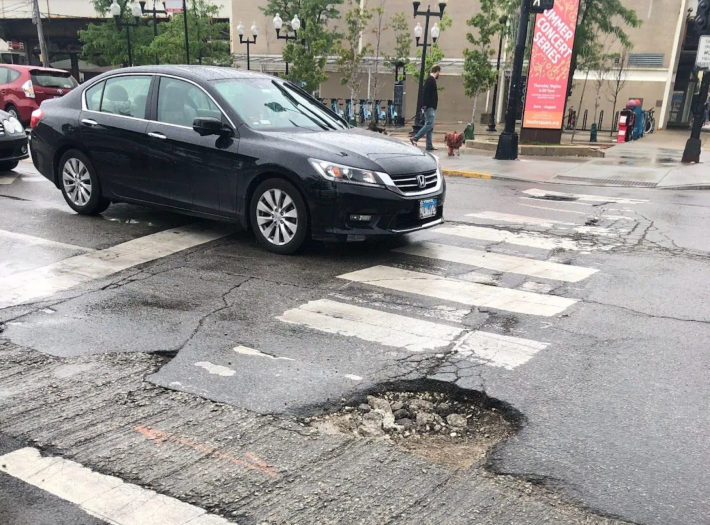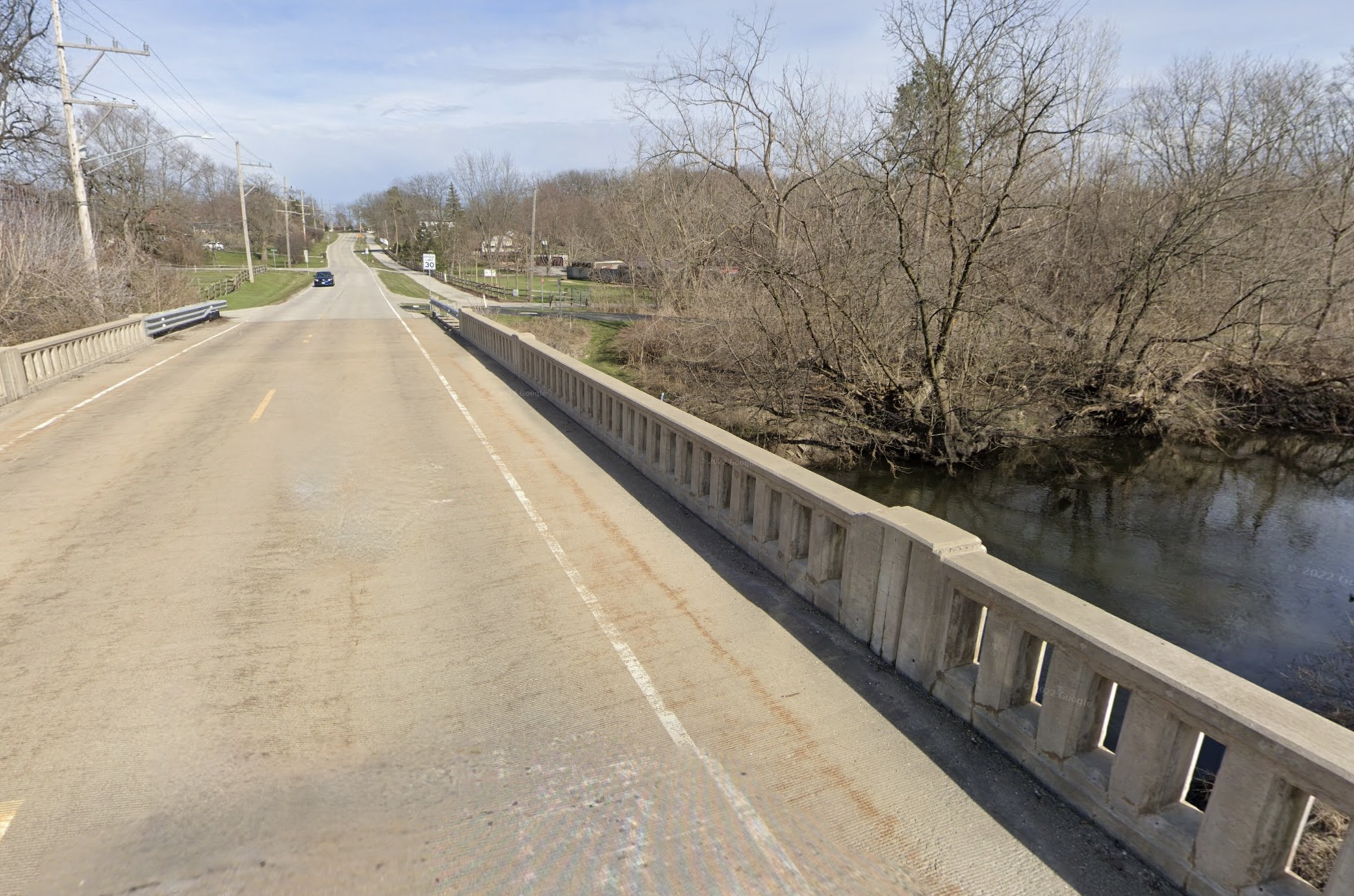
This post includes previous reporting by Streetsblog Chicago contributor Steven Lucy.
Last Thursday, attorney Brendan Kevenides of the bike and pedestrian personal injury firm FK Law (a Streetsblog Chicago sponsor) was the bringer of bad news. "This morning, the Illinois Supreme Court ruled against a Chicago bicyclist who sued the city after he was injured due to a poorly maintained road," he tweeted.
Kevenides was referring to a June 2019 incident where Clark Alave fell from his bike after riding into a pothole at the northeast corner of Leland and Western avenues, across from the Western Brown Line station in Lincoln Square. He reportedly suffered "fractured teeth, facial cuts, scarring, injury to his left hip, and injury to his right shoulder." Clark sued the city of Chicago for failure to maintain the road.
The city was able to get Alave's suit dismissed due to the standard set in 1998 by the Boub v. Township of Wayne decision. Chicago's Law Department argued that since Leland and Western aren't signed bikeways and don't have marked bike lanes, Alave was a "permitted" but not "intended" road user.
Here's more on Boub v. Wayne. As Jeff Balch reported in a November 1998 Chicago Reader article, in September 1992 triathlon racer Jon Boub was on a training ride, pedaling fast down Saint Charles Road in Du Page County towards a one-lane bridge across the Du Page River. Unknown to him, a Wayne Township road crew had removed the asphalt filler from between the bridge's wooden planks.

That wasn't a problem for drivers. But Boub's front wheel was caught in one of the bridge gaps, he went over the handlebars, and was badly injured. Ultimately, the Illinois Supreme Court ruled that the township wasn't liable for the crash because the bike rider was a permitted rather than intended user of the road.
Returning to the modern era, Clark Alave appealed the decision on his 2019 crash, noting that there was a Divvy bike-share station at the southeast corner of Leland/Western, across the street from the crash site, next to the Brown Line station. He argued that this indicated Leland (where a raised bike lane is currently supposed to built in the near future as part of the Leland Greenway project) was an intended road for bike riders.
In May 2022, the First District Appellate Court agreed with that point of view. Erron Fisher, the attorney representing Alave, told Streetsblog's Steven Lucy, "We are pleased with the Court's well-reasoned opinion. From the onset of this case, it seemed disingenuous that the city of Chicago was earning income from a Divvy bicycle rental station… while at the same time arguing that there was no intent that bikes are ridden on the roadway. It is our hope that this order makes the roadways safer for everybody on two wheels.”
However, In his thread last week, Kevenides noted that on Thursday the Illinois Supreme Court instead upheld the reviled Boub v. Wayne decision. The court ruled that despite the fact that there's a Divvy station at Leland and Western, neither roadway is intended for bicycle travel. So exactly how are you supposed to ride to or from the city-owned bike-share station?

"This is a bad decision for all Illinois cyclists, making it very difficult to receive compensation from a municipality that fails to maintain its roads," Kevenides tweeted. "Bicyclists will need to look to the [Illinois State] Legislature going forward for positive change, not the courts."
Indeed. Not only did this ruling make it harder for bike riders to recover damages if they crash on a poorly maintained Illinois road. It also discourages municipalities from protecting people on bikes by building bicycle infrastructure, because, counterintuitively, that makes them more likely to be held responsible if a cyclist is injured.
Kevenides provided more details to Streetsblog. "The Supreme Court’s decision in Alave undermines the rights of bicyclists throughout Illinois in at least two ways," he said. "First, it makes it much harder for a bicyclist to receive compensation for injuries caused by a municipality’s failure to properly maintain roads in its jurisdiction, and, secondly, will discourage localities from constructing safe bike infrastructure to avoid potential liability. The Court reaffirms its notorious Boub v. Township of Wayne decision from 25 years ago which immunized municipalities from liability for injuries to cyclists where the injury causing road hazard was located outside pavement markings designating a bike lane. This myopic approach ignores the reality of biking in our state today in which cities have manifest a clear intent to grow and encourage cycling broadly."
Michael Keating, another local bike-ped attorney (and also a Streetsblog sponsor) weighed in as well. "It was disappointing to have had a chance to make a dent in the legacy of Boub v. Wayne County and not have the Illinois Supreme Court more broadly recognize bicyclists as not only permitted but intended users of our state's roadways," he said. "However, one positive takeaway from this is that Illinois' highest court is obviously willing to take up cases involving bicyclists like they did last month in holding that an insurance company must provide uninsured motorist coverage to a bicyclist. It is important that our advocacy groups and attorneys push these issues in our courtrooms, our city halls, and in Springfield."
"Like other advocates, we are disheartened by the Illinois Supreme Court decision in this case," said Jim Merrell, managing director of advocacy for . "We urge the General Assembly to take action to ensure municipalities are held accountable when they fail to keep people on bikes safe."
"Ride Illinois was guardedly optimistic that the Alave case would reverse the Boub v. Wayne decision and the negative impacts that decision has had for bicyclists over the past 25 years," added Dave Simmons, the executive director of the statewide bike advocacy group. "We are discouraged by the Illinois Supreme Court’s recent decision. Advocates will continue to push for bicyclists being recognized as both intended and permitted users of Illinois roads."
Streetsblog did not interview Erron Fisher, the attorney for Clark Alave, by press time for this article, but we will try to update the piece with a statement from him in the near future.

Did you appreciate this post? Please consider making a tax-deductible donation.





